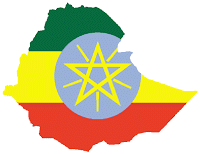ETHIOPIA: Religious Leaders, Citizens, Welcome New Year 2012 With Prayer and Fasting

If you were in Ethiopia today, you would be seven years younger because the country on Thursday, September 12th ushered in the New Year, 2012. This is because Ethiopia follows a unique calendar only synonymous to the country and her neighbour Eritrea.
While addressing participants of SIGNIS Africa Congress during Eucharistic Celebrations in Addis Ababa on Thursday September 5, His Eminence Cardinal Berhaneyesus, Archbishop of Metropolitan Catholic Archdiocese of Addis Ababa announced that all the religious leaders in Ethiopia had called for a national day of prayer and fasting with supplication for peace in the country so that people of Ethiopia would be able to live peacefully as they welcome the new year of 2012 with God’s blessing and the spirit of forgiveness.
The National Day of Prayer and Fasting was held on Friday, September 6.
While other countries use the Gregorian Calendar which is the most widely used calendar in the world today, Ethiopia uses both. The Gregorian calendar is used in the international standard for representation of dates and times and is based on a 365-day common year divided into 12 months of irregular lengths.
Ethiopian Calendar on the other hand has 13 months, each with 30 days, and one intercalary month that has five or six days on a leap year. New year, according to Ethiopian Calendar, is usually celebrated on 11th or 12th September in the Gregorian Calendar.
The Ethiopian calendar is seven to eight years behind the Gregorian calendar, due to the fact that the Ethiopian Orthodox Church disagrees with the Roman Catholic Church about when Jesus was born. The Ethiopian Orthodox Church believes Jesus’ birth year to be 7 B.C., which it believes to be exactly 5,500 years after the world was created. As the Ethiopians count hours from dawn, the Ethiopian calendar also differs from the Gregorian calendar in terms of calculation of time.
∽End∽
By Pamela Adinda, AMECEA Online News


